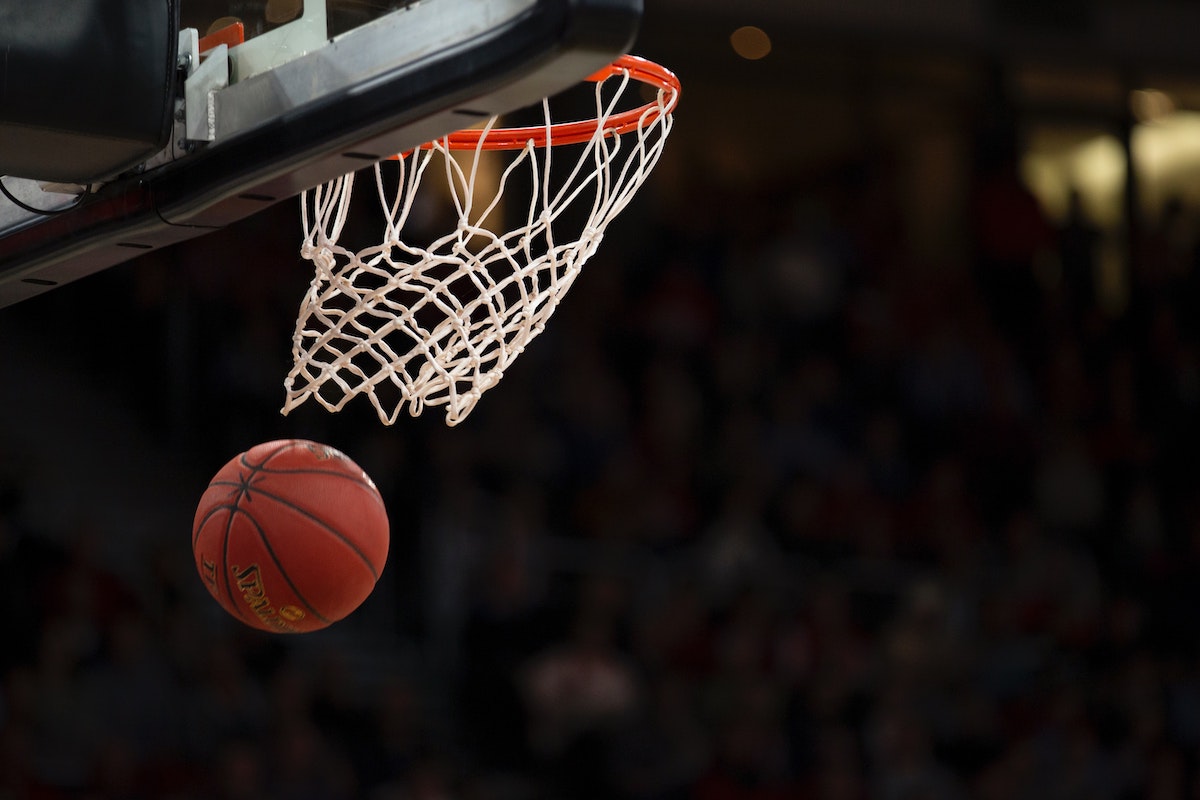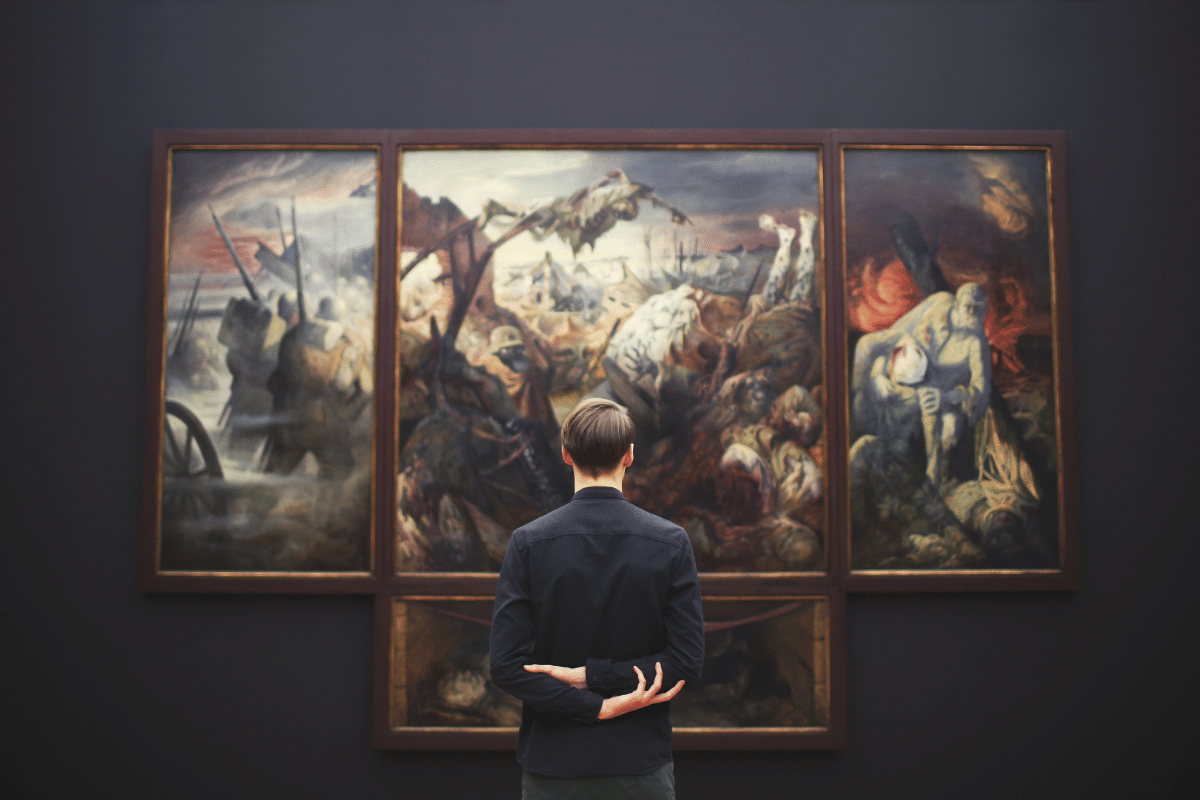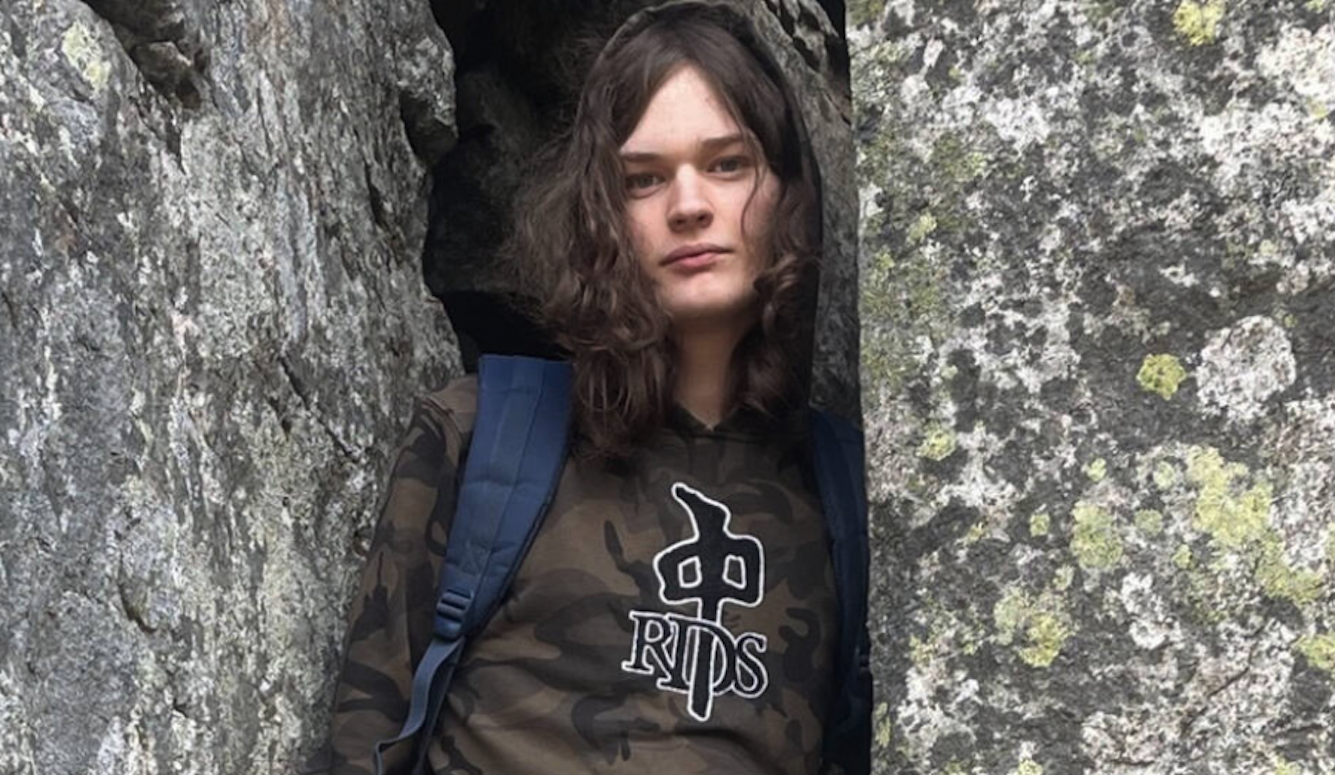Art
Splendid Triviality: Philosophy, Art, and Sport in a Time of Crisis
They are necessary because without them none of the things that are noble can flourish.

One of my philosophy professors in college remarked that philosophy flourishes in a time of decline or crisis. No, that doesn’t mean that philosophers all secretly pray for catastrophes. But it is true that darker times call for philosophical reflection and that philosophy, like the arts, might have something to offer the human spirit when things cease to make sense.
A crisis certainly seems to bring out the worst in us, and it’s hard not to wonder if Hobbes was right about human nature. Certainly many of the headlines from the current crisis document the endless depths of human selfishness. The man in Tennessee who stockpiled 17,700 bottles of hand sanitizer and sold them at exorbitant prices comes to mind. But we have also seen stories of courageous selflessness in the service of others, from healthcare workers risking their own lives to young people delivering food to the sequestered elderly. If you read the introduction to the Decameron, set in Italy during the 14th-century plague, it’s clear that, in Boccaccio’s estimation, the bad outweighed the good during that crisis. But when the Florentines of the Decameron flee the city for a country villa and regale each other with tales, ranging from the bawdy to the pious, they embrace the full range of humanity in a way that ushers in the Renaissance.
Modern political philosophers from Hobbes to Rousseau tended to argue about whether humans in a state of nature are good or bad, but they tended to pose that question as an either-or. Hobbes’s natural humans are so selfish and vicious that they enjoy the suffering of others. At the other end of the spectrum, Rousseau thought that humans in a state of nature are free, peaceful, and so empathetic that they feel their fellow humans’ suffering.
But at times like these, it’s best to put Hobbes and Rousseau’s false dilemma aside and harken back to the ancient Greek philosophers who saw with great clarity that, of all animals, humans have the capacity for the greatest good and the greatest evil. In Plato’s Republic, Socrates discusses the wide range of human desires, but he is clear that all humans possess all of these desires, including the worst of them. The good human has the same desires as the worst human but controls them. Socrates even says that the soul that is capable of the greatest good is also capable of the greatest evil.
Aristotle says that humans can be the best of animals, but when separated from law and justice they are the worst animals of all. The abilities that make it possible for us to achieve wisdom and justice make it possible for us to achieve the opposite. Aristotle derives from his understanding of human nature that the best life is one of virtue, the excellence of the soul, but he acknowledges that most people lead a hedonistic life—a life for sake of pleasure. Although we have the capacity to lead a virtuous life, we certainly have a tendency to do the opposite. Plato and Aristotle, up to a point, agree with Hobbes that most humans tend to be selfish, driven by desires, and sometimes brutal, but that is a failure to fulfill their nature, not a revelation of it.
Those humans who are the “best of animals” are probably rare, but, thankfully, those humans who are the “worst of all” are fairly rare, too. Most of us fall somewhere in between and aspire to become better. But recognizing that we are capable of both extremes makes our choices much more important. And settling for a one-sided assessment of human nature can seriously cloud our judgment of others. The Pollyannish believer in innate goodness will fail to see the bad in others; the cynic will fail to see the good. Those who embrace the ancient Greek view of the full range of human possibility will be open to the possibility of both extremes and everything in between, both in others and in themselves. A crisis, such as the present one, tends to bring out the extremes, but it is also an opportunity to resist the selfish and heartless impulses and embrace the best that is in us.
The other philosophical theme that keeps popping into my head is the battle, in Machiavelli’s terms, between fortuna and virtù. His account of fortune harkens back to the ancient world’s firm belief in the overwhelming power of fate. Virtù for Machiavelli meant strength or ability, more akin to Roman virtus—manliness—than Christian virtue. And he spent his adult life trying to figure out how virtù could, if not conquer, at least manage fortuna. His advice, often contradictory, reveals his frustrations. Sometimes he says that if you go with the flow you’ll always be on top; sometimes he says be bold (in the famously offensive passage where he says fortune is a woman and should be beaten); sometimes he says you can’t turn back the tide but you can build dikes in anticipation of the next flood; and in one passage he even says fortuna determines 50 percent of our lives and virtù the other half. Because of his desire to control fortune, it is accurate to refer to him as the first modern thinker, for in a certain sense, the modern project has centered on the attempt to control the vicissitudes of nature through the development of science and technology.

It’s apparent that we could have had more control over the coronavirus pandemic had we managed the technology better and in a more timely fashion. And it’s apparent that we need to anticipate future epidemics of this kind and prepare for them. It’s truly sad when we have the technology to deal with this kind of crisis but don’t put it into play early enough and extensively enough. But, as Machiavelli knew, all of the technology in the world will never fully conquer fortuna.
Perhaps a dose of ancient Stoicism might temper our expectations and our hubris. Continuing a tradition started by Plato and Aristotle, the Stoics believed that the only good was virtue, the Greek aretē, not the Roman virtus or the Machiavellian virtù. Socrates says in the Apology and elsewhere that the only thing in life and in death that matters is whether you’re a good person. For Aristotle, the highest good for a human is a full life of moral virtue. Unlike the ups and downs of a life for the sake of pleasure, a life for the sake of moral virtue is as constant and permanent as anything human can be.
But, as Aristotle readily acknowledges, to live a full life of moral virtue requires a good deal of luck—you could die young of the coronavirus or get run over by a truck. The philosophers’ answer to the Homeric vision of humans as the playthings of the gods is not that we can control fortuna. Even for these Greek philosophers, moira—fate—is powerful, and the human condition is at once comic and tragic, as the end of Plato’s Symposium suggests when Socrates and his companions argue about whether the same man could write both comedy and tragedy. The tragic side of the human condition implies that we, like the tragic heroes, will suffer more than we deserve, even if we often do our hubristic best to deserve that suffering. Pathos mathei, says Aeschylus: from suffering, if you survive it, comes learning or, in some cases, from suffering comes philosophy and art.
Let’s put this into a more contemporary context. Amazon is not selling out of Plato’s Republic and Heidegger’s Being and Time. But look at how ordinary people are responding to the pandemic. Yes, the political divide is enormous and vicious, but there are bridges across that chasm. People around the globe are starving—if not for philosophy—most emphatically for art and music, of whatever variety is meaningful to them. Italians standing on their balconies singing Volare; San Franciscans sitting in empty Page Street to listen to Saul Richmond-Rakerd play cello on his front porch; people tuning into streaming concerts on Facebook and YouTube and contributing to the virtual tip jars for their favorite singer-songwriter. When it looked like Facebook was going to restrict live steaming of music, there was an avalanche of condemnation, not just from artists but also from their fans. Yes, the artists, museums, and music venues are trying to stay afloat, so they are going virtual in order to survive. But people want their concerts, their art museums, their live theater. In my neck of the woods, where the ghosts of Townes Van Zandt and Guy Clark set the standard for singer-songwriters, performers are starting to return to live venues, and their fans are starting to attend. How well they are abiding by the proper pandemic safety standards, and whether or not live music performances are wise from a public health standpoint at all, people desperately want to see live music. As Van Zandt says in one of his songs, “there ain’t no dark till something shines.”
And, believe it or not, this is related: people want their sports. Sports in America are largely about fame and fortune, at least for the athletes, coaches, universities, and owners. But sport as sport is actually in the same family as art and philosophy. What is it about sports that is so compelling when we first become attracted to them, as an athlete or as a fan? It’s something hard to articulate because, like art, there is something beautifully out of the ordinary about sports. Christopher Lasch talked about the “splendid futility” of sport. Even better, Randolph Feezell transformed that expression into “splendid triviality.” It’s just a game, which means that ultimately it doesn’t matter like, say, dying from COVID-19 or going to war as a soldier. But we play our games and watch them as if they are the only thing on the planet that does matter, noting that that “as if” is crucial. Sports, played well, are beautiful. And they create a beauty that is communal, a beauty in which we all share. One could say, as Johan Huizinga suggested with his term homo ludens, that a life well lived is a life well played—played as if it matters absolutely, even though deep down we don’t know if it matters at all. In the end, with life as with sport, it’s how you played the game that matters.
So art as art and sport as sport are both splendidly trivial but somehow touch the deepest recesses of the human spirit. This pandemic has made that remarkably clear. Like philosophy as the love of wisdom, perpetually suspended between wisdom and ignorance, sport and art somehow give meaning to our individual souls and to our communities.
A great 20th-century philosopher once said that philosophy is that with which one can do nothing. Neither philosophical reflection, nor the greatest works of art, nor a popular song brilliantly crafted, nor a double play perfectly executed will save a single person from the ravages of the coronavirus. Holed up in my house in small-town Texas, not unlike the characters in Boccaccio’s Decameron, I fervently hope that I, at the high-risk age of 69, and my loved ones do not die from the coronavirus. I hope that we bring to bear all of the powers of technology and the state to minimize the number of humans who die or suffer needlessly. But I keep thinking of Socrates’s comment that ruling is necessary but not noble. I would extend that to say that the state and all its apparatuses are necessary but not noble. They are necessary because without them none of the things that are noble can flourish. And it should go without saying that during a deadly pandemic, philosophy classrooms, music venues, art museums, theaters, and ballparks cannot do business as usual. But in times when the dark side of fortuna rears its ugly head, it’s worth remembering that philosophy, art, and the splendidly trivial games that athletes play, while thoroughly unnecessary, are noble—and ennobling. We crave meaning, however inconclusive it may be.






